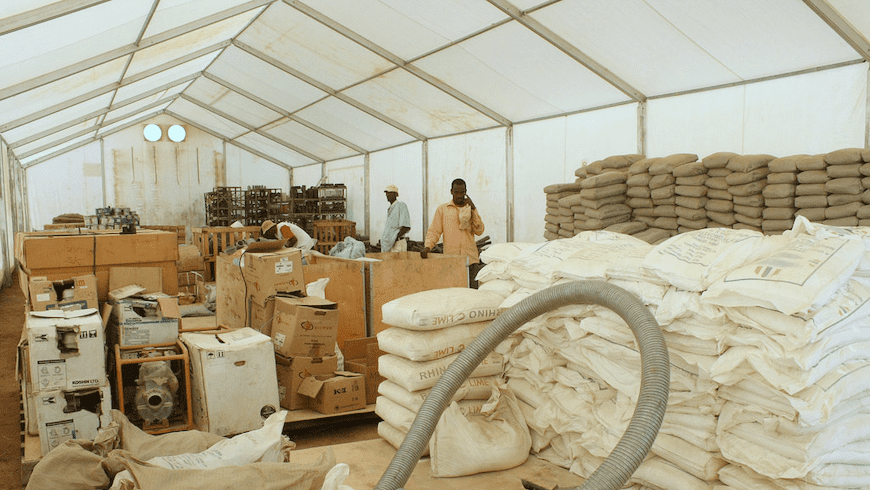Africa’s agricultural sector is the backbone of many economies, providing livelihoods for millions of people. However, the sector faces numerous challenges, including post-harvest losses, inadequate infrastructure, and limited access to markets. One critical aspect that can significantly impact agricultural development in Africa is warehousing and storage. In this article, we will explore the role of warehousing and storage in promoting agricultural development in Africa.
The Challenges of Agricultural Production in Africa
Africa’s agricultural production is characterized by seasonality, perishability, and variability. Many farmers face difficulties in storing their produce, leading to post-harvest losses estimated at between 20-40% of total production. These losses not only affect farmers’ incomes but also reduce the availability of food for consumption. Moreover, inadequate storage facilities lead to a glut of produce in the market, resulting in lower prices and reduced profitability for farmers.
The Importance of Warehousing and Storage
Warehousing and storage play a vital role in agricultural development by:
- Reducing Post-Harvest Losses: Proper storage facilities can significantly reduce post-harvest losses, ensuring that produce is preserved for longer periods.
- Stabilizing Prices: By storing produce during periods of surplus, warehouses can help stabilize prices, ensuring that farmers receive better prices for their produce.
- Improving Food Security: Warehousing and storage enable the stockpiling of food reserves, which can be used to mitigate the effects of droughts, floods, and other disasters.
- Enhancing Market Access: Warehouses can serve as a link between farmers and markets, providing a platform for farmers to sell their produce to buyers.
- Supporting Trade Finance: Warehouses can provide collateral for farmers and traders, enabling them to access credit and other financial services.
Benefits of Modern Warehousing and Storage
Modern warehousing and storage facilities offer several benefits, including:
- Improved Inventory Management: Modern warehouses use technology to track inventory levels, ensuring that produce is stored and dispatched efficiently.
- Better Quality Control: Modern warehouses have facilities to grade, clean, and package produce, ensuring that products meet market standards.
- Increased Efficiency: Modern warehouses are designed to reduce handling costs and improve turnaround times, enabling farmers to get their produce to market quickly.
- Enhanced Security: Modern warehouses have security features to protect produce from theft and damage.
Examples of Successful Warehousing and Storage Initiatives in Africa
Several initiatives have been implemented in Africa to improve warehousing and storage:
- Warehouse Receipt Systems: Countries like Ghana, Zambia, and Tanzania have implemented warehouse receipt systems, which enable farmers to deposit their produce in a warehouse and receive a receipt that can be used to access credit.
- Private Sector-Led Warehousing: Companies like Export Trading Group and Farmers’ Warehouse Company have invested in modern warehousing facilities, providing storage services to farmers and traders.
- Government-Initiated Storage Programs: Governments like Nigeria and Kenya have launched initiatives to improve storage infrastructure, including the construction of modern warehouses and silos.
Challenges and Opportunities
Despite the benefits of warehousing and storage, several challenges need to be addressed:
- Infrastructure Deficits: Many African countries lack adequate storage infrastructure, including roads, electricity, and communication networks.
- High Costs: Building and maintaining modern warehouses can be expensive, making it challenging for small-scale farmers to access these facilities.
- Policy and Regulatory Frameworks: Weak policy and regulatory frameworks can hinder the development of warehousing and storage infrastructure.
Conclusion
Warehousing and storage play a critical role in promoting agricultural development in Africa. By reducing post-harvest losses, stabilizing prices, improving food security, enhancing market access, and supporting trade finance, warehouses can significantly impact the livelihoods of millions of farmers. To realize the full potential of warehousing and storage, African governments, private sector players, and development partners must work together to address infrastructure deficits, reduce costs, and strengthen policy and regulatory frameworks. By doing so, Africa can unlock the potential of its agricultural sector and ensure food security for its people.

